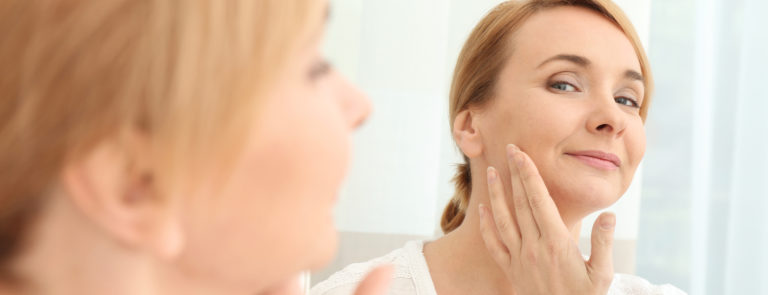15% off €35 OR 20% off €45
Code:SHOP
Adult acne: What causes skin breakouts in your 20s, 30s and beyond?

Suffering with adult acne? Still getting acne in your 30s? You’re not alone. Not all of us can outgrow spots. But good skincare habits can help. Find our tips to beat adult acne
Teenagers aren’t the only ones suffering with acne breakouts
We explore what causes adult acne and a few ways you can adapt your skincare routine if your skin is prone to breakouts.
There are two things that make acne bearable as a teenager. Firstly, you know you’re not alone. With clinical studies estimating that around 85% of 12-25 year olds suffer from acne1, it’s at least a complaint you share with your friends. Secondly, knowing it’s not going to last forever. Yes, that light at the end of the tunnel. The belief that the moment you hit 20 your spots will magically disappear. It's an age-old myth that teenage acne sufferers universally grasp onto.
Unfortunately, it turns out you can’t outgrow acne. In fact, it’s estimated that as many as 12% to 22% of women aged 26 to 44 experience adult acne2. As a result, for a large number of adults, skin breakouts are an unwanted reality they never saw coming.
Fortunately, a wide range of acne-friendly skincare is available. But before we talk about that, let’s answer the big question – why is your skin acting in this way?
What causes adult acne?
You’re probably wondering if adult acne is different to the spots you had as a teenager. In reality, the causes of adult acne are surprisingly similar to what you went through during puberty. Firstly, to be clear, 25 is the age that dermatologists consider your skin reaches adult maturity. Excessive skin oil and bacteria clogging up follicles remains the main cause of spots in the over 25s. And yes, a surge in hormones is probably still what's triggering this to happen. This makes pregnancy, menstruation and other hormonal changes, the adult acne equivalents to puberty. In addition, adult acne also runs in families. So, if you have a parent who suffered from spot breakouts post-25, you have more chance of having them too. However, one difference can be the location of spots. There are two broad types of adult acne – persistent and late-onset. Persistent is a continuation of acne into adulthood and therefore looks similar to teenage acne. However, late-onset acne tends to show more on the lower jawline and chest.Acne-friendly skincare for adults
Regardless of your age, the fundamentals of acne skincare are exactly the same. Whether you’re 13 or 30 a consistent routine, using non-irritating products is the most effective way to prevent the formation of spots. Therefore, a regular skincare routine that keeps your skin clean and free of bacteria can protect your face from spots. This process should include three essential elements:-
Cleanse
-
Exfoliate
-
Moisturise



